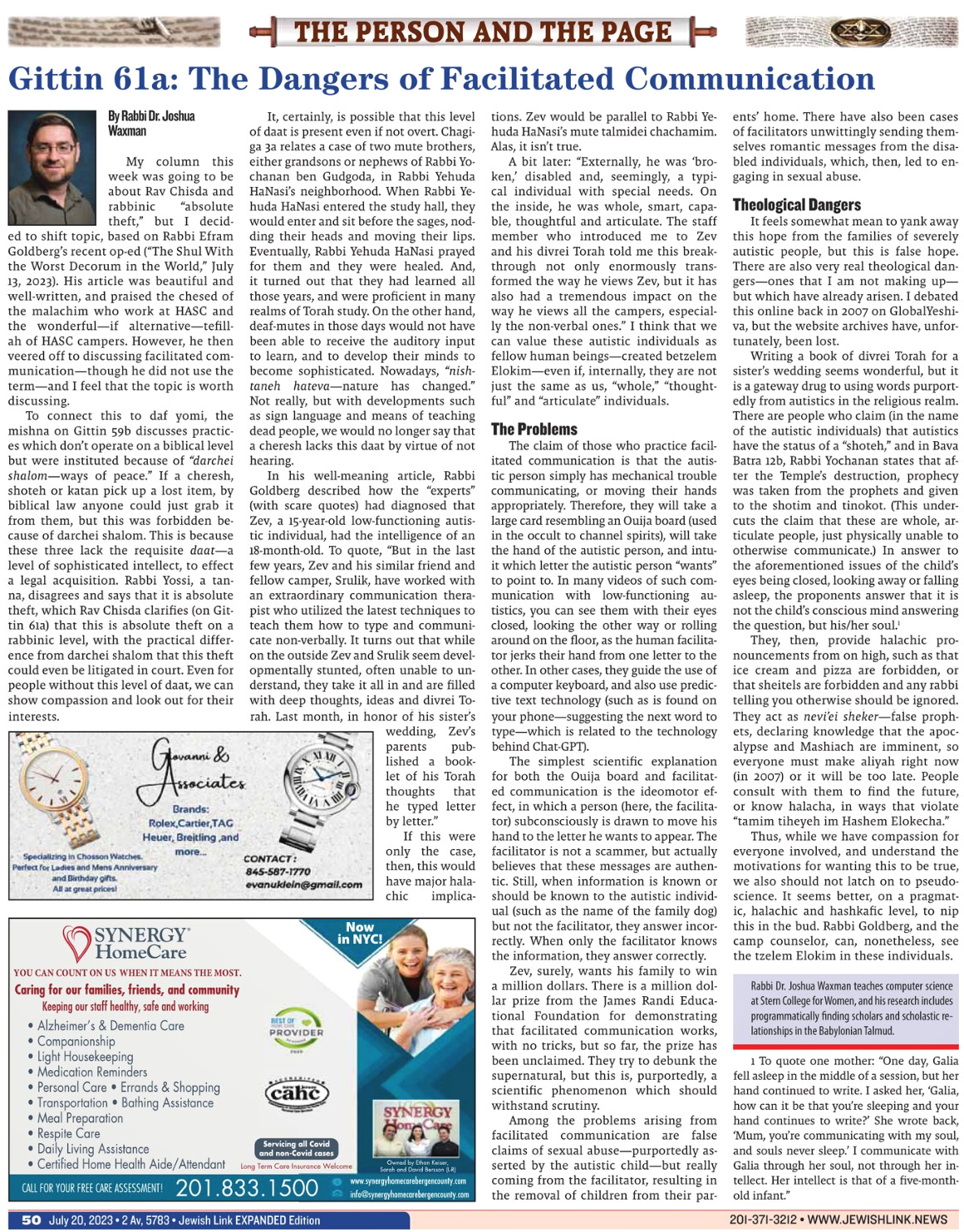Facilitated Communication (article summary)
Two weeks ago, I diverted from my usual Daf Yomi topic to focus on facilitated communication, though I did still tie it in to the daf (HTML, flipdocs, paid Substack).
Essentially, Rabbi Ephram Goldberg wrote an article (Jewish Link, his website) which happened to promote facilitated communication. In this manner, he (and the HASC counselor said) we can see that really these are whole, complete individuals, with the implication is that that is why they deserve to be treated with respect and compassion, not because they are who they are and have a tzelem Elokim.
One of the first things Zev shared was: "My brain is smart; my body is dumb.”
As I read this pamphlet and looked at Zev, I simply couldn’t believe it. What was happening on his inside did not match what I could see on the outside. Externally, he was “broken,” disabled, and seemingly a typical special needs individual. On the inside, he was whole, smart, capable, thoughtful, and articulate. The staff member who introduced me to Zev and his Divrei Torah told me this breakthrough not only enormously transformed the way he views Zev, but it has also had a tremendous impact on the way he views all the campers, especially the non-verbal ones.
The problem is that all, or much, of facilitated communication is bunk. It is equivalent (almost literally) to an Ouija board, as the person acting as facilitator intuits where the autistic person wants to type.
Here is Jesse Singal writing about it at The Cut — note how in the image, the autistic person is looking the other way as the facilitator moves her hand to the desired letter.
And he is summarizing and linking to an article in Slate about the same topic.
I also address some of the dangers — false sexual accusations, actual sexual molestation by facilitators who unwittingly seduce themselves, and real theological dangers, as people take the words of autistics as pesak halachah or nevuah from “shotim”, as they “self”-describe themselves.



